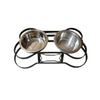Discover the best diet for dogs with kidney disease to improve their kidney health. Identify kidney-friendly treats, safe foods and nutritional supplements to support your pet’s health.
Dogs diagnosed with kidney disease should be fed a diet that minimizes phosphorus and protein content. It is recommended to include meals that are rich in omega-3 fatty acids, as well as hydrated foods and specific vegetables like carrots. Proper management of kidney disease in dogs requires thoughtful dietary changes, making it essential to follow a specialized diet for dogs with kidney disease.
A well-planned diet can assist in slowing the disease's progression and improving the quality of life for your canine companion.
Symptoms of Chronic Kidney Disease
In dogs, chronic kidney disease (CKD) develops incrementally, and the timely recognition of symptoms can facilitate better management of the condition. The usual symptoms associated with CKD in dogs include:
- Increased thirst and an uptick in urination.
- Weight loss in dogs and reduced appetite
- Vomiting and diarrhea
- Exhaustion and weakness
- Foul breath with a distinct chemical odor
- Gums with a pale hue
- Mouth ulcers
What Foods Are Good for Dogs With Kidney Failure?
Implementing a kidney-friendly diet can lessen the pressure on your dog's kidneys and assist in managing their symptoms. The following foods are suitable for dogs suffering from kidney failure:
- It's crucial for dogs to have protein in their diet, but excessive amounts can stress their kidneys. Choosing the best dog food for kidney disease, including high-quality options like eggs or fish, can provide necessary protein that's easier for them to digest and can be served in smaller amounts.
- For dogs with kidney ailments, low-phosphorus diets are advantageous, since elevated levels of phosphorus can accumulate in those affected by kidney disease, leading to further deterioration of kidney function. It is prudent to avoid foods like organ meats, dairy items, and bones, as these contain high phosphorus levels.
- Incorporating omega-3 fatty acids into your dog's diet has the potential to diminish inflammation and mitigate kidney damage. Fish oil serves as an excellent source of omega-3s and can be seamlessly integrated into their meals.
- Dogs that are affected by kidney disease often have an elevated requirement for fluids. To help maintain their hydration, it is advisable to provide canned food or to soak kibble in water.
Kidney Diet for Dogs
Kidney disease is one of the health problems that can kill your dog, so you should pay extra attention to the diet of your furry friend. Diets for dogs with kidney disease usually consist of controlled protein and phosphorus levels, along with added omega-3 fatty acids to support kidney health, and increased potassium and B-vitamins to maintain energy levels. If prescription diets are not accessible, homemade options can be considered, but they must be carefully formulated to meet nutritional requirements. Always seek guidance from your veterinarian or a veterinary nutritionist before making any changes to your dog's diet.
Vitamins, Supplements, Treats for Dogs With Kidney Disease
In conjunction with adjustments to your dog's core diet, the inclusion of specific vitamins and supplements can provide additional support for kidney function and general health. Such enhancements can aid in symptom management, address nutrient depletion, and slow the advancement of disease. Moreover, opting for suitable treats for dogs with kidney disease allows your dog to savor snacks without jeopardizing their health.
Vitamins for Dogs With Kidney Disease
- Dogs affected by kidney disease often lose B-vitamins due to excessive urination, which can lead to weakness, fatigue, and a poor appetite. The use of a B-complex vitamin supplement can be beneficial in restoring these essential nutrients, thus improving energy levels and overall health. Additionally, B-vitamins are important for metabolic functions and the maintenance of nerve health.
- Although it is not always essential, some dogs diagnosed with kidney disease may gain from the inclusion of a vitamin C supplement in their diet. This vitamin supports immune health and functions as an antioxidant. However, it is vital to consult your veterinarian prior to administration, as an overabundance of vitamin C can raise oxalate levels, potentially resulting in urinary stone formation.
- Dogs affected by kidney disease often face challenges in metabolizing vitamin D, which plays a critical role in calcium regulation and bone health. Your veterinarian may advise a carefully supervised vitamin D supplement; however, it is imperative to manage this treatment to prevent toxicity, as it could lead to additional harm to the kidneys.
Supplements for Dogs With Kidney Disease
- Omega-3 fatty acids, which are primarily derived from fish oil, are acknowledged for their role in reducing inflammation and promoting kidney health. Evidence suggests that omega-3s can slow the progression of chronic kidney disease by decreasing protein loss in urine and managing blood pressure. Administering fish oil supplements is a safe and natural approach to enrich your dog's diet with these beneficial fats.
- The presence of elevated phosphorus levels is a common occurrence in dogs with kidney disease, potentially leading to further deterioration of kidney function. Phosphorus binders, which can be either medications or supplements, are employed to prevent the uptake of phosphorus from the digestive system. These binders are effective when paired with a low-phosphorus diet to control phosphorus concentrations.
- Probiotics significantly contribute to the maintenance of gut health and the enhancement of digestive processes. A number of veterinarians recommend probiotics that are specifically designed to assist in the elimination of waste products from the body, thus supporting the kidneys in their filtering responsibilities.
- Dogs that are afflicted with kidney disease frequently have insufficient potassium levels, resulting in muscle weakness and a poor appetite. The incorporation of potassium supplements, either in the forms of potassium gluconate or potassium citrate, can aid in the maintenance of healthy potassium levels within the body.
Treats for Dogs With Kidney
Discovering treats that are safe for your dog's kidneys can prove to be a challenge; however, it is possible to offer them snacks that are both healthy and satisfying.
- You can seek help from easy homemade dog treats recipes available on the internet. The food items are composed of ingredients that are low in both protein and phosphorus.
- Cooked vegetables may be transformed into small baked snacks. Ensure that no salt, sugar, or harmful seasonings are included in the preparation.
- Treats with low levels of protein and phosphorus are suitable for occasional rewards. It is recommended to choose products that are identified as "kidney-friendly" or those that have received approval from your veterinarian.
What Vegetables and Fruits Are Good for Dogs With Kidney Disease?
Specific fruits and vegetables are both safe and beneficial for dogs with kidney disease. These items are generally low in phosphorus and may be offered in limited portions.
- Cooked carrots, green beans, zucchini, and sweet potatoes are low in phosphorus and can be safely included in your dog's diet. It is advisable to refrain from offering raw vegetables, as they may pose digestive challenges for your pet.
- Apples without seeds, blueberries, and watermelon are low in phosphorus and can serve as suitable treats. Conversely, fruits such as grapes or raisins should be avoided due to their toxicity to dogs.
Ensuring that your dog receives appropriate nutrition, supplements, and adequate hydration is essential for the management of kidney disease. Prior to altering your pet’s diet, it is imperative to consult with your veterinarian, collaborating with them to develop a tailored meal plan that addresses your dog's individual requirements. Thoughtful dietary management can significantly enhance your dog’s quality of life, even in the presence of this condition.
The Importance of Regular Vet Check-ups for Dogs With Kidney Disease
Regular veterinary examinations are crucial for overseeing your dog's kidney health and modifying their treatment strategy as necessary. Given that kidney disease is a progressive ailment, frequent veterinary visits facilitate the early identification of any alterations in your dog's health status. Routine blood tests and urine analyses are instrumental in evaluating kidney function, enabling your veterinarian to suggest dietary changes, supplements, or medications based on the findings.
It is essential to implement a meticulous diet for dogs with kidney disease. Ongoing monitoring and proactive management can substantially impact the rate of progression of kidney disease and enhance your dog's overall health.




Leave a comment